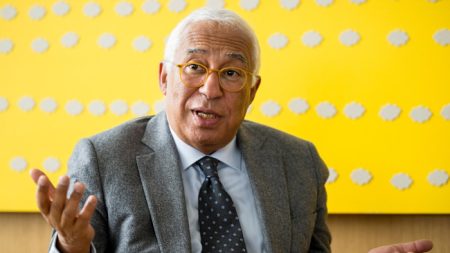Unlock the Editor’s Digest for free
Roula Khalaf, Editor of the FT, selects her favourite stories in this weekly newsletter.
Hundreds of staff in KPMG’s Netherlands business, including senior partners and managers, cheated on professional exams, and the firm misled investigators about the misconduct, according to the US audit regulator.
The Dutch arm of KPMG was on Wednesday fined $25mn by the Public Company Accounting Oversight Board, the largest penalty in the US audit regulator’s history.
The PCAOB also imposed a $150,000 fine on KPMG Netherlands’ former audit boss Marc Hogeboom and banned him for life from working for a firm that audits US public companies.
The findings are the latest ethics scandal to hit a Big Four accountancy firm.
Investigators found that KPMG staff shared questions and answers to mandatory internal exams covering US auditing standards, professional ethics and managing conflicts of interest over the course of at least five years until 2022. The conduct reached as far as partners and senior firm leaders, including Hogeboom, the PCAOB said.
The regulator also said the Dutch firm’s chief executive Stephanie Hottenhuis learned that the firm had made inaccurate submissions to PCAOB investigators but “failed to inform anyone until months later”.
“This misconduct reveals an inappropriate tone at the top and a complete failure by firm leadership to promote an ethical culture worthy of investors’ trust,” said Erica Williams, chair of the PCAOB.
Cheating on internal exams has been a repeated problem across the Big Four accounting firms, which have all now been fined for the activity. The misconduct at KPMG Netherlands continued for years after its US arm had been fined for cheating in 2019. KPMG’s businesses in the UK and Colombia have also been sanctioned.
EY paid a $100mn fine in 2022 for cheating by hundreds of its staff in the US and failing to quickly admit the matter to its regulator.
And the PCAOB on Wednesday also fined Deloitte’s businesses in the Philippines and Indonesia $1mn each for answer-sharing on professional tests.
With cheating continuing to be discovered years after it was first called out, Williams said the PCAOB had launched a “culture review” of some auditors to discover whether a poor tone at the top was contributing to the misconduct. She said whistleblowers could contact the PCAOB directly, as well as going through internal channels.
The enforcement action against KPMG was the result of a joint investigation by the PCAOB and the Dutch Authority for the Financial Markets (AFM), which will put the firm under enhanced supervision in the Netherlands.
“This is a KPMG issue, but it is not only a KPMG issue,” said Hanzo van Beusekom, AFM board member. “It is a global issue and something the accounting profession as a whole needs to look in the mirror and take note of how this behaviour could develop.”
KPMG Netherlands said staff and partners who participated in answer-sharing have been placed under sanctions and some have left the firm. It had also put in place controls to monitor whether training tests were being completed appropriately, it said.
In a statement, Hottenhuis said: “The conclusions are damning, and the penalty is a reflection of that. I deeply regret that this misconduct happened in our firm. Our clients and stakeholders deserve our apology.”
Read the full article here














